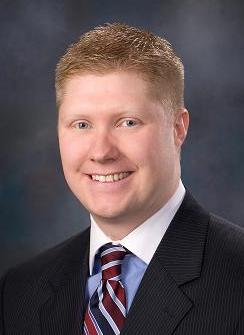Today, in the House Revenue Taxation Committee, majority members pushed through a Constitutional Amendment (HJR4) regarding local-option taxing. HJR4 would modify the State Constitution to dictate the parameters of future policy regarding sales and use tax proposals . It clarifies that local-option taxing must occur in a traditional jurisdiction (county or city). It also clarifies that any local-option tax must pass by a 2/3 vote. Finally, it mandates that enabling legislation must still be passed by the Legislature prior to any local-option tax is proposed.
This made me think of three questions:
- Is this the proper role of the Constitution?
- What is the value of this proposal?
- What impact would this have on future proposals?
The value of the HJR4 is, of course, in the eye of the beholder. In my view, and the view of Bose Metro Chamber of Commerce (amongst many others), there is no value to the proposal. This legislation has been written in order to thwart local communities and their right to self determination by setting the bar so high that it will be unachievable. This is wrong plain and simple.
The actual impact of this legislation is not completely known, but there are some pretty likely consequences. If this amendment were to pass, it would likely cripple the ability of Treasure Valley residents from being able to address its transportation concerns from a regional perspective. This is because it would mandate that the vote for local-option would be voted on at the jurisdiction level, in this case the county. The regional transportation authority (RTA), in the Treasure Valley know as Valley Regional Transit (VRT) transcends the county boundaries. Rather thank taking one vote and reaching the threshold in the RTA, each county would be considered separately. This just doesn't make sense.
HJR4 is headed to the House floor, but I will vocally oppose it. I will urge other lawmakers to do the same.


3 comments:
Branden, I look forward to your vocal opposition and that of reps from across the state.
This isn't simply a Treasure Valley issue. Look down the road 20 years to a time when the Magic Valley counties of Twin Falls and Jerome want to establish a joint bus system, or to the day when Idaho Falls Blackfoot, and Pocatello seek a regional transit system. HJR4 will thwart them.
Kootenai County has a good local transit system in cooperation with the Coeur d'Alene Tribe. Say they want to expand it to Kellogg or Sandpoint. HJR4 will tie their hands.
Traffic and smog don't stop at the county limits, so why impose artificial restrictions to let regions work on solutions together?
And as you say, it simply doesn't make sense on a policy level. If HJR4 passes, it will come back to haunt Idaho for decades.
The constutional ammendmant process is a fair alternative to statutory policy. Taxation, even as critical as this may seem, deserves careful scrutiny. It is obvious my friend, that legislative policy could address this issue, but again, the majority will pursue avenues that claim credit, yet, prescribe a false alternative to practical policy change. In closing, do not focus on mear partisan debate, instead, look to the county by county issue. The vast majority of Idahoans prefer a collaborative approach to addressing all infrastructure issues. If you are to succeed, you must moderate, seek middle ground. Address the salient issues within a policy, only then will you succeed
малолетки сасут онлайн http://free-3x.com/ порно фото галерея малолетки free-3x.com/ порно малолетки онлайн [url=http://free-3x.com/]free-3x.com[/url]
Post a Comment